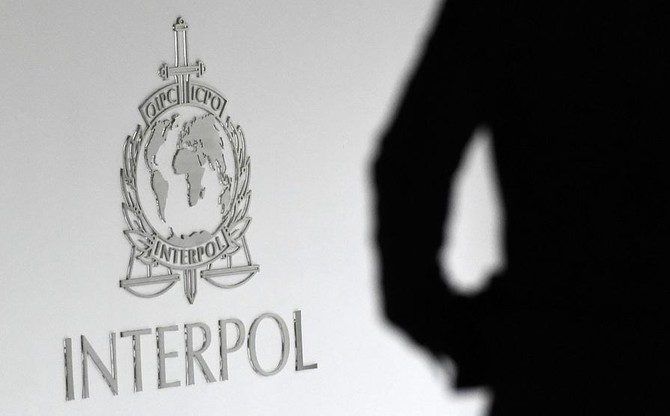The election of Ahmed Naser Al-Raisi as the President of Interpol in 2021 has stirred controversy within the realm of international law enforcement. Since 2015, he has held the position of Inspector-General of the Ministry of Interior, overseeing the prison system and policing in the UAE. Nevertheless, Al-Raisi faces multiple complaints of human rights violations, including complaints filed with the police systems in France and Turkey, which involve serious allegations of barbaric crimes, including torture and a disregard for the principles of due process.
There are clear indications that Al-Raisi has abusively manipulated the security apparatus of the Emirati state, resulting in the imprisonment of dissidents and the exploitation of Interpol’s red notice system to criminalize his opponents.
Certainly, Al-Raisi’s election as the President of Interpol represents the diplomatic influence of the UAE on the international stage as they aim to establish themselves as a significant player in global geopolitics. However, this influence appears to have been the result of substantial contributions to one of Interpol’s funding sources, the Foundation for a Safer World. In March 2017, this foundation accepted a €50 million donation over five years, entirely funded by the UAE, making it the third-largest external funder of Interpol.
While the role of the President of the organization is primarily ceremonial, without income and with part-time responsibilities, it carries significant symbolic weight and authority. This is because the President presides over discussions in the General Assembly, which serves as the supreme governing body of the Organization. Nonetheless, as revealed in the report provided by Sir David Calvert-Smith UK Director of Public Prosecutions, in conjunction with International Human Rights Advisors, the institution’s election process remains shrouded in opacity, despite numerous appeals from human rights organizations for greater transparency in the organization’s actions.
Furthermore, in addition to the deficiency in transparency and accountability, numerous reports from the United States Congress, the European Parliament, academic institutions, and human rights organizations have extensively documented the misuse of Interpol in recent years. Autocratic regimes have exploited this supranational police force system with the sole purpose of persecuting their opponents, branding political dissidents as terrorists. Criticism has grown regarding the dissemination of information through its red notice system, as it allows autocratic regimes to manipulate the system, labeling political dissidents as internationally wanted criminals.
It is deeply concerning that the institution allows antidemocratic regimes to exploit Interpol for political purposes, targeting political rivals, critics, activists, and refugees.
For these grave reasons, the election of a president from a member country with a consistent history of human rights violations and disregard for due process threatens to undermine the organization’s progress toward transparency, credibility, and independence while respecting the international framework of human rights.
The United Arab Emirates has not ratified the International Covenant on Civil and Political Rights (ICCPR), the International Covenant on Economic, Social and Cultural Rights (ICESCR), nor the International Convention on the Protection of the Rights of All Migrant Workers and Members of Their Families (CMW). This unwillingness of the country to adhere to international human rights standards and ensure compliance should be a cause for concern.
Furthermore, Emirati laws related to crimes, cybersecurity, and terrorism have faced scrutiny due to their lack of compliance with international norms. Vague and overly broad provisions have allowed authorities to target political opponents and activists, raising concerns about potential abuses of power and human rights violations. The lack of clarity and precision in the definition of certain crimes has resulted in the detention of individuals involved in peaceful dissent.
This restriction on the right to free expression has had a profound impact on society as a whole, including human rights defenders. The leading human rights defender in the United Arab Emirates, Ahmed Mansoor, also known as the “million-dollar dissident,” has been imprisoned for over six years. He was arrested on March 20, 2017, and unlawfully sentenced to 10 years in prison in May 2018 due to his peaceful human rights activities, particularly in his social media posts.
The new Law on Combating Rumors and Cybercrime severely restricts freedom of expression and assembly, violating human rights. The law, which took effect on 2 January 2022, replaced the previous Cybercrime Law but failed to address its problematic provisions, further expanding restrictions on civic space and freedom of expression. The vague and broad definitions in the law grant authorities excessive discretion to criminalize and imprison individuals exercising their rights, including journalists, activists, and human rights defenders. Furthermore, the law penalizes the dissemination of “fake news” and punishes those who organize protests without prior approval from the authorities. This law represents a significant threat to fundamental rights.
However, the United Arab Emirates lacks an independent judiciary, as the judicial and executive powers are intertwined. The absence of safeguards within the Public Prosecution hinders fair investigations and legal proceedings.
In summary, political dissidents and human rights defenders face serious threats in the United Arab Emirates due to the enforcement of broad and vague laws that can label them as terrorists based on simple social media posts. There is also a real risk of having their names arbitrarily included in Interpol’s wanted list, exposing them to severe consequences.
The occupation of the Interpol presidency by someone with no credibility for the position, due to their clear history of human rights violations and the political use of the organization, represents a significant threat to human rights and the adherence to the rule of law. Paradoxically, it also poses a risk to the security of the global community, as the president of the International Criminal Police Organization appears to be a criminal.

